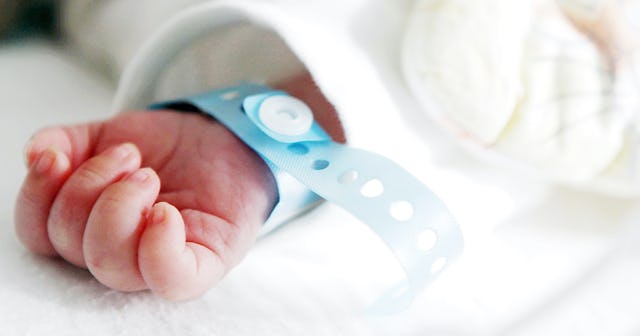Baby Born To Partially Vaccinated Mom Shown To Have COVID Antibodies

Doctors are studying whether COVID immunity can be passed on to babies from vaccinated mothers
As more and more adults receive vaccines to protect them from COVID-19, doctors are learning more about the protection the vaccines can offer. And now, researchers in Florida have announced the first known case of a baby born to a partially vaccinated mother who was born with coronavirus antibodies, possibly signaling that mothers can pass on their vaccine protection to their children.
The mother in this case is a frontline healthcare worker who received the first dose of the Moderna COVID-19 vaccine in early January, three weeks before she gave birth. It’s been confirmed that she never was infected with the coronavirus, meaning her antibodies came entirely from the one vaccine dose she received. Her pediatricians, Dr. Paul Giblert and Dr. Chad Rudnick of Boca Raton, took a blood sample from the baby after it was born and found that it had COVID antibodies. Now, they’re working on getting those findings published in a medical journal, and hoping to learn more from studying other moms and their babies.
It’s normal for mothers to pass on disease antibodies to their babies via the placenta, usually during the third trimester of pregnancy. Antibodies passed on to babies during pregnancy are typically temporary, and the protection fades over a few weeks to a few months. But they provide the baby with passive immunity that lasts them until they’re old enough to get vaccinated themselves against diseases like the flu and whooping cough.
“It was an idea that we’ve had that we’ve seen with other vaccines we’ve given women who are pregnant,” Dr. Giblert told the South Florida Sun Sentinel. “Things like the flu vaccine and the whooping cough vaccine which are standard, we know that those can pass protection in antibodies to babies. So the hypothesis was that the same thing would happen with the COVID vaccine.”
Giblert and Rudnick said that they have no idea at this point how long the baby’s antibodies might last, or how well they might protect it from a COVID-19 infection.
“Further studies have to determine how long this protection will last,” Rudnick told local reporters. “They have to determine at what level of protection or how many antibodies does a baby need to have circulating in order to give them protection.”
Still, with many pregnant women receiving COVID-19 vaccines, the two doctors say this scenario could become more common.
“This is one small case in what will be thousands and thousands of babies born to mothers who have been vaccinated over the next several months,” Rudnick said.